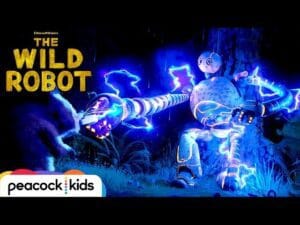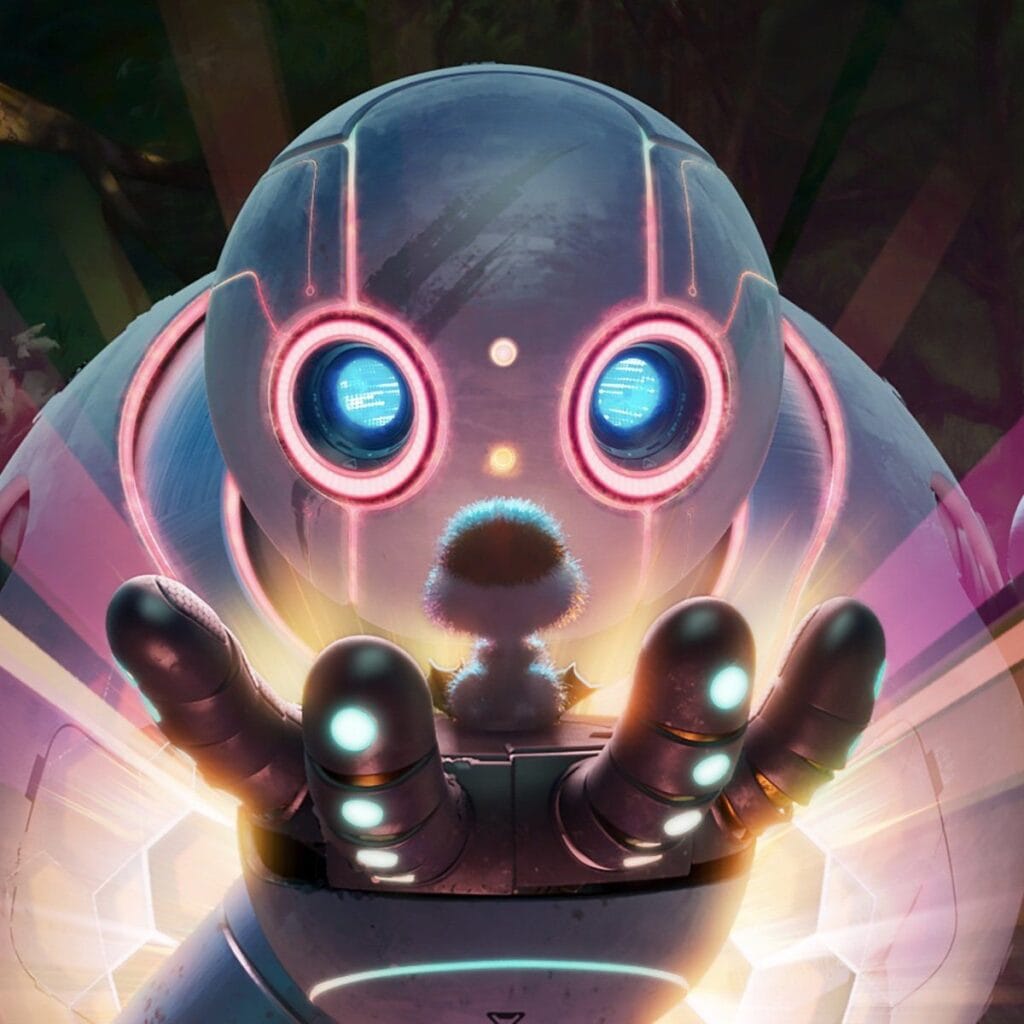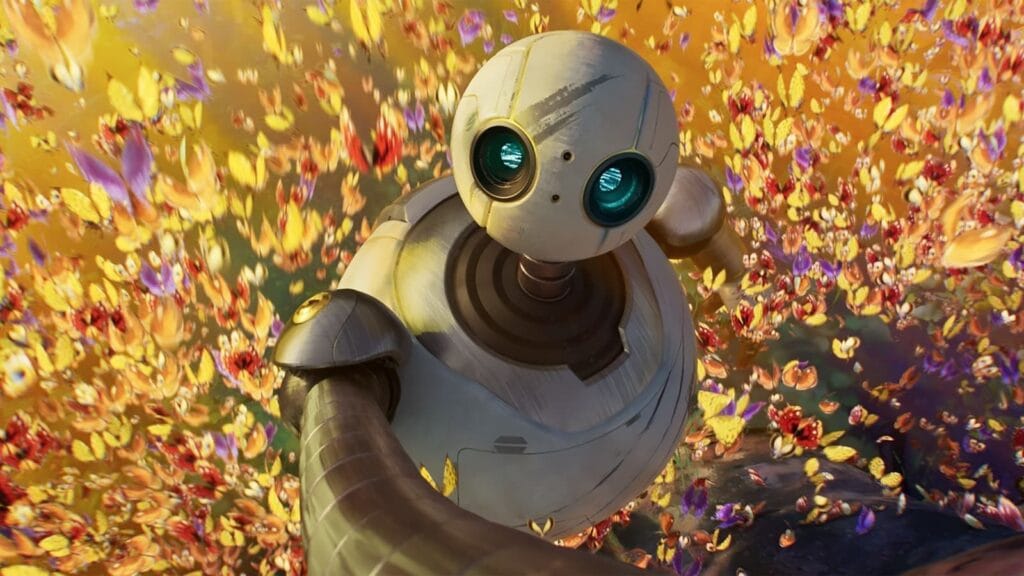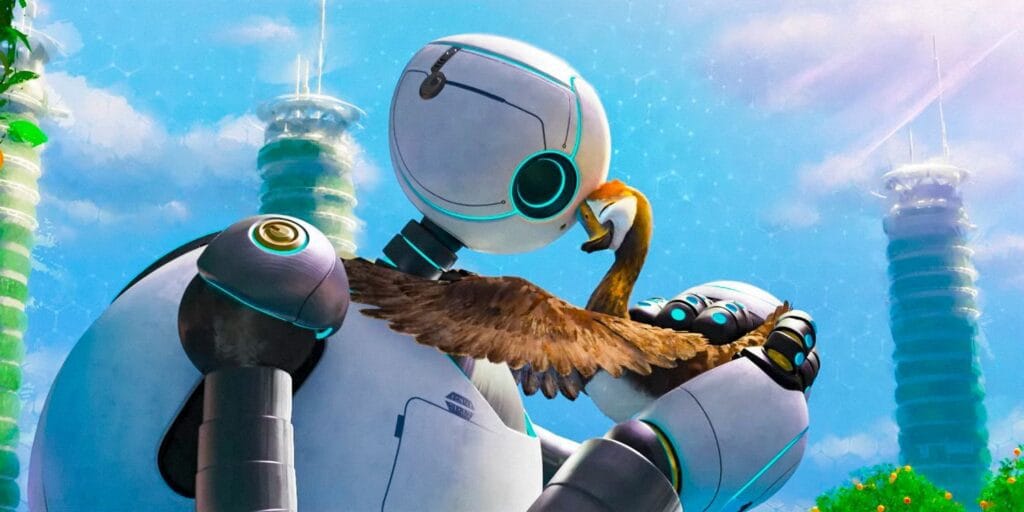Roz’s Change in The Wild Robot: From Machine to Gatekeeper — An Illustration for Self-improvement

Peter Brown’s The Wild Robot presents a convincing story that investigates subjects of endurance, transformation, and profound development through the personality of Roz, a machine intended for utility yet changed into a sustaining watchman and defender. Roz’s excursion from being a customized robot to a sympathetic parental figure reflects the course of self-awareness, mirroring the widespread human experience of development, self-revelation, and profound change.
This paper inspects Roz’s advancement, outlining the way that her personality bend addresses self-awareness and the capacity to adjust, associate, and embrace liability.
1.Roz’s Beginning: The Machine’s Purpose and Initial Identity
Toward the beginning of The Wild Robot, Roz is portrayed as a standard robot — legitimate, mechanical, and task-situated. She is customized for effectiveness and needs close to home intricacy. Her underlying reason seems restricted to performing pre-characterized errands, mirroring an unbending personality established in capability as opposed to singularity.
Image of Mechanical Presence: Roz’s initial conduct reflects the manner in which individuals frequently work inside cultural assumptions, driven by schedules and outside orders as opposed to mindfulness.

Abandoned and Disconnected: When Roz winds up marooned on a remote location, her mechanical presence is disturbed. She should confront new difficulties that her programming doesn’t set up her for, representing the inconvenience and vulnerability individuals experience when taken out from their usual ranges of familiarity.
Arousing to Mindfulness: Roz’s process starts with perception and transformation, alluding to the beginning phases of self-improvement — interest, learning, and the scrutinizing of personality.
This phase of Roz’s change matches the human experience of venturing into a new area, whether it’s a new position, a relationship, or a significant life altering event, expecting people to depend on nature and versatility instead of predefined rules.
- Learning Through Experience: Emotional and Social Development
Roz’s movement from a mechanical being to a sustaining gatekeeper mirrors a shift from scholarly endurance to close to home association. Her capacity to gain from the creatures and the climate reflects the development people go through connections and encounters.
Building Connections: Roz acquires the trust of the creatures by noticing, imitating, and in the long run helping them, exhibiting the significance of compassion and participation in shaping bonds.

Raising Brightbill: Roz embraces and raises Brightbill, a gosling whose endurance relies completely upon her consideration. This relationship powers Roz to extend how she might interpret liability, love, and penance.
Profound Arousing: However she starts as a machine without sentiments, Roz’s encounters step by step impart in her feelings like warmth, defense, and pain.
Roz’s change features the way in which self-improvement frequently requires profound weakness and the ability to associate profoundly with others. Her advancement mirrors how human development is formed by information as well as by connections and close to home encounters.
3.Facing Challenges: Growth Through Struggle
All through The Wild Robot, Roz faces various difficulties that test her strength and power her to develop. From enduring unforgiving climate to guarding the creatures against hunters, Roz adjusts, learns, and reinforces her personality.
Adjusting to Difficulty: Roz’s mechanical body gives her a benefit concerning strength and solidness, yet she should foster imagination and critical thinking abilities to flourish in the eccentric regular world.
Shielding the Local area: When risk emerges, Roz changes into a defender, focusing on the security of others over her own endurance. Her shift from zeroing in exclusively on herself to shielding her local area addresses a basic part of development and obligation.

Conquering Programming: Roz steadily rises above her programming, showing that development frequently requires breaking liberated from restricting convictions or ways of behaving to embrace new characters.
These difficulties mirror the more extensive human experience, where confronting difficulty encourages flexibility, fortitude, and a more profound feeling of direction. Roz’s change highlights that development isn’t tied in with staying away from challenges however about tracking down strength and shrewdness through them.
- Becoming a Guardian: Symbol of Leadership and Responsibility
Toward the finish of the story, Roz develops into in excess of a survivor — she turns into a watchman and a pioneer. Her job shifts from detached onlooker to dynamic defender, representing the summit of self-awareness.
Defender of Life: Roz’s eagerness to gamble with herself for the security of others features the development that comes from focusing on aggregate prosperity over individual necessities.
Adjusting Rationale and Feeling: In spite of being a machine, Roz figures out how to offset rationale with feeling, typifying an amicable mix of knowledge and sympathy — an optimal illustration for self-improvement.

Embracing Change: Roz’s acknowledgment of her new personality shows that development frequently requires embracing change as opposed to opposing it.
This stage addresses the satisfaction of her excursion, showing that genuine advancement is accomplished when people develop as well as utilize their development to elevate others.
- The Broader Message: Transformation and Growth
Roz’s story reverberates profoundly as an illustration for human turn of events. Her change from a machine to a watchman addresses the excursion we as a whole take as we explore life’s difficulties, construct connections, and take on liabilities.
From Capability to Reason: Similarly as Roz advances past her modified capability, individuals frequently move past cultural assumptions to find individual reason.
Transformation and Learning: Roz’s capacity to learn and change reflects the human ability to develop through experience, errors, and reflection.
The capacity to understand anyone on a profound level: Roz’s personal arousing underscores the significance of compassion and weakness in building significant associations.
Leadership and Caregiving: Her job as a gatekeeper features the development that comes from securing and sustaining others.

Roz’s improvement fills in as an update that self-awareness isn’t about flawlessness however about versatility, strength, and the boldness to embrace change.
Conclusion
In The Wild Robot, Roz’s change from a mechanical being into a supporting and defensive gatekeeper is a strong portrayal of self-improvement. Her process mirrors the phases of development — self-disclosure, profound arousing, versatility through battle, and a definitive hug of liability and initiative.
The story urges perusers to perceive that development frequently happens when we face new difficulties, construct connections, and step past our customized jobs to see as more profound significance. Like Roz, we are fit for change, figuring out how to offset rationale with feeling, singularity with local area, and construction with versatility.
At last, Roz’s story fills in as an immortal similitude for growing — to make due as well as to flourish, interface, and safeguard our general surroundings.